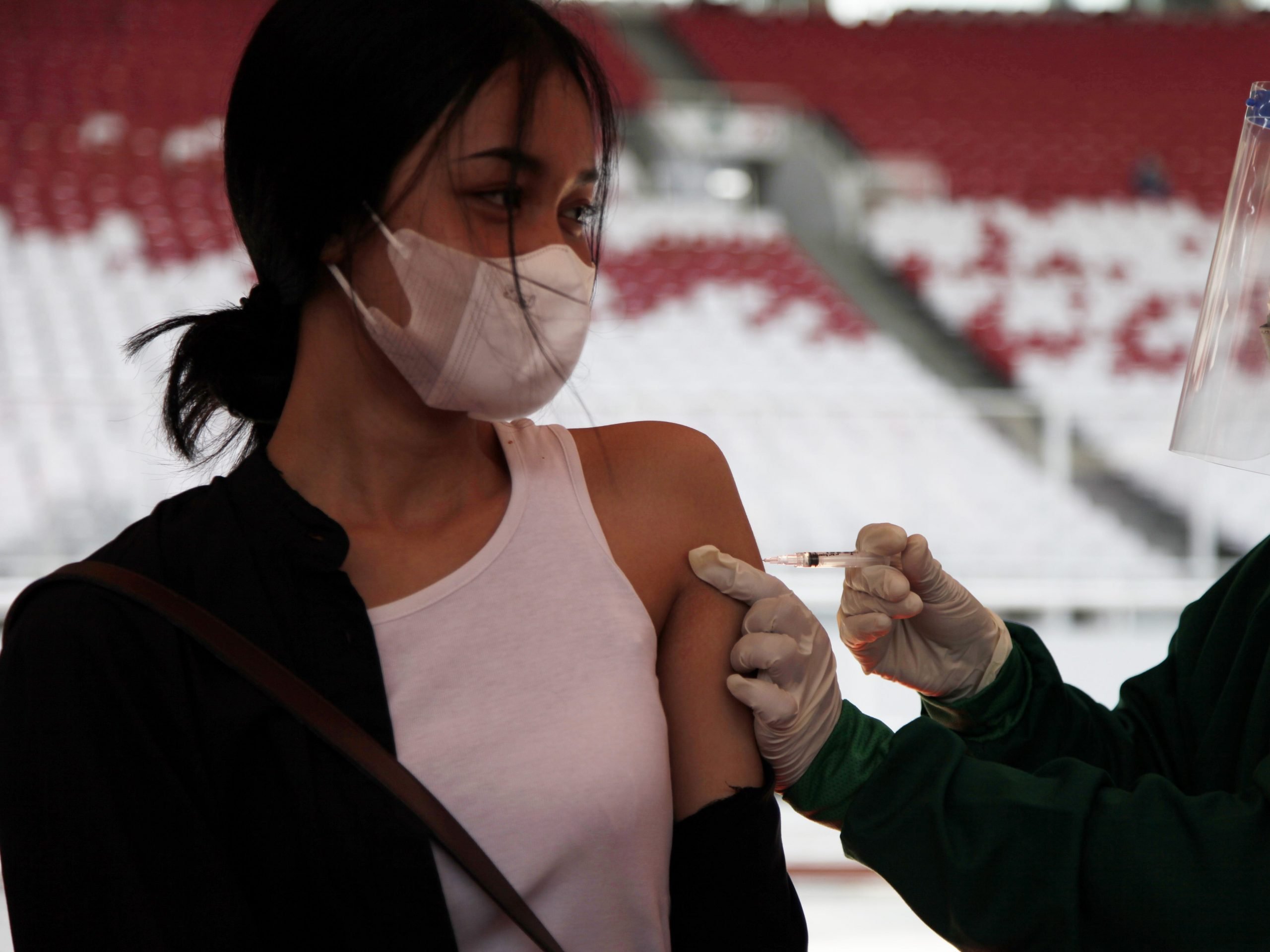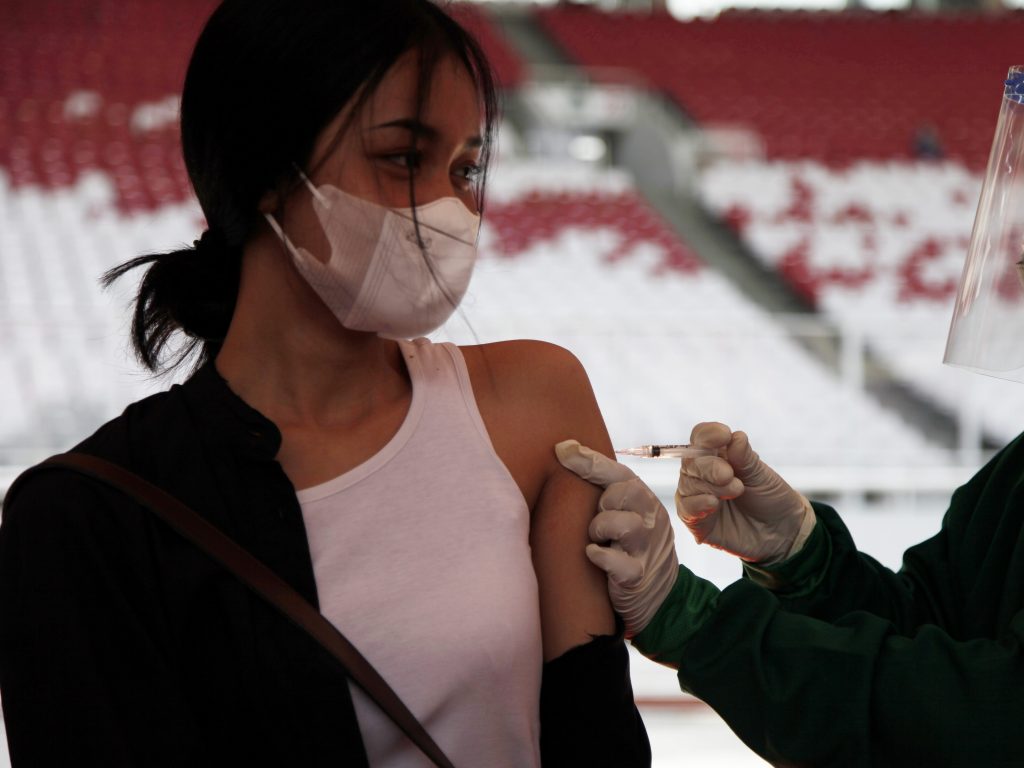
Aditya Irawan/NurPhoto via Getty Images
- The World Health Organization's (WHO) chief scientist called mixing and matching COVID-19 vaccines a "dangerous trend."
- She said individuals should not "voluntarily start thinking" about getting different vaccines.
- The UN health agency also called on countries not to purchase booster shots while others still need vaccines.
- Visit Insider's homepage for more stories.
In a Monday briefing, the chief scientist of the World Health Organization (WHO) warned against individuals mixing and matching different vaccines, saying there is insufficient data to show the practice is more effective in protecting against COVID-19.
"It's a little bit of a dangerous trend here. We are in a data-free, evidence-free zone," WHO Chief Scientist Soumya Swaminathan said in the online COVID-19 briefing. She said studies on the topic are currently being carried out. WHO Director-General Tedros Adhanom Ghebreyesus and six other WHO directors and experts were also present at the COVID-19 briefing.
The briefing comes as more countries are looking to mix and match vaccines amid a vaccine shortage and amid concerns that vaccines are ineffective against more infectious variants of the coronavirus.
Thailand announced on Monday that it will administer the AstraZeneca vaccine as a second dose for those who received Sinovac as their first dose, reported the Bangkok Post. Indonesia announced on Friday it will give a third Moderna booster shot to medical workers who have received two doses of Sinovac, reported the Jakarta Post.
The WHO also expressed concern that as richer countries start looking at administering booster shots, more vulnerable countries may be left behind.
"The global gap in COVID-19 vaccine supply is hugely uneven and inequitable. Some countries and regions are actually ordering millions of booster doses, before other countries have had supplies to vaccinate their health workers and most vulnerable," said Adhanom Ghebreyesu at the Monday briefing.
The UN health agency chief scientist said there is no evidence to suggest booster shots are currently needed, explaining that while infection rates are rising in some countries among vaccinated individuals, there hasn't been an increase in hospitalizations or deaths.
